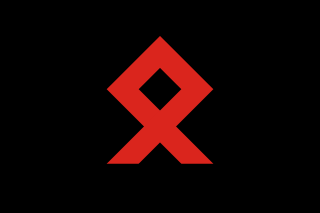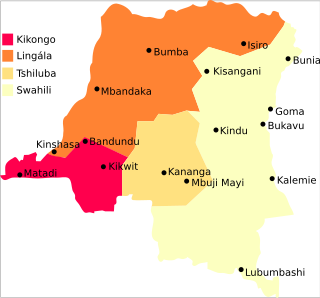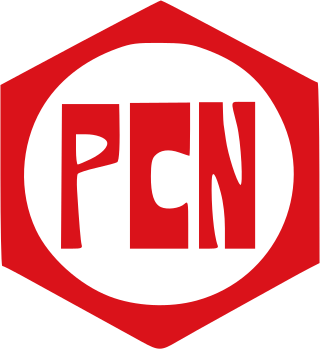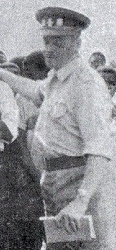Related Research Articles

Vlaams Blok was the name of a Belgian far-right and secessionist political party with an anti-immigration platform. Its ideologies embraced Flemish nationalism, calling for the independence of Flanders. The party originated from split within the Volksunie (VU) party after the right-wing separatist and national conservative wing became disgruntled with the compromise of accepting Belgian federalism over Flemish interests, and what they saw as the VU's move to the left. The former VU members created the Flemish National Party (VNP) and the Flemish People's Party (VVP) which formed an electoral alliance called Vlaams Blok in 1978, before merging to create Vlaams Blok as a political party in 1979. Vlaams Blok was the most notable militant right wing of the Flemish movement and its track record in the Flemish and Belgian parliament elections was strong, making it one of the most successful nationalist parties in Western Europe and it ultimately surpassed the People's Union in support. The party initially focused solely on the issues of Flemish autonomy and political freedom, which remained its core philosophy, but subsequently gained wider public support through broadening its campaigns to include immigration and law-and-order themes.

Far-right politics, or right-wing extremism, refers to a spectrum of political thought that tends to be radically conservative, ultra-nationalist, and authoritarian, often also including nativist tendencies. The name derives from the left–right political spectrum, with the "far right" considered further from center than the standard political right.

Jean-François Thiriart, often known as Jean Thiriart, was a Belgian far-right political theorist.

Edmund Dene Morel was a French-born British journalist, author, pacifist and politician.

The Order of Flemish Militants – originally the Flemish Militants Organisation – was a Flemish nationalist activist group in Belgium defending far-right interests by propaganda and political action. Established in 1949, they helped found the People's Union in 1954, a Belgian political party. The links between the extremist VMO and the VU lessened as the party moved towards the centre. In later decades the VMO would become linked to neo-Nazism and a series of paramilitary attacks on immigrants and leftists before disappearing by the late 1980s.

Les Identitaires, formerly the Bloc identitaire, is an Identitarian nationalist movement in France. Like the French New Right, scholars generally consider the movement far-right or sometimes as a syncretic mixture of multiple ideologies across the political spectrum.
European nationalism is a form of pan-nationalism based on a pan-European identity. It is considered minor since the National Party of Europe disintegrated in the 1970s.
Right-wing terrorism, hard right terrorism, extreme right terrorism or far-right terrorism is terrorism that is motivated by a variety of different right-wing and far-right ideologies, most prominently, it is motivated by Ultranationalism, neo-Nazism, anti-communism, neo-fascism, ecofascism, ethnonationalism, religious nationalism, and anti-government patriot/sovereign citizen beliefs, and occasionally, it is motivated by opposition to abortion, tax resistance, and homophobia. Modern right-wing terrorism largely emerged in Western Europe in the 1970s, and after the Revolutions of 1989 and the dissolution of the Soviet Union in 1991, it emerged in Eastern Europe and Russia.

The Democratic Republic of the Congo is a multilingual country where an estimated total of 242 languages are spoken. Ethnologue lists 215 living languages. The official language, since the colonial period, is French, one of the languages of Belgium. Four other languages, three of them Bantu based, have the status of national language: Kikongo, Lingala, Swahili and Tshiluba.

Bases Autónomas was a Spanish neo-Nazi group, later moving to France, and known for its youthful membership and its violent rhetoric and propaganda.

The Parti Communautaire National-Européen (PCN) is a Belgium-based political organisation led by Luc Michel, a former member of the neo-Nazi FANE party. A largely National Bolshevik movement, it also has activists in France.
The far-right tradition in France finds its origins in the Third Republic with Boulangism and the Dreyfus affair. The modern "far right" or radical right grew out of two separate events of 1889: the splitting off in the Socialist International of those who chose the nation and the culmination of the "Boulanger Affair", which championed the demands of the former Minister of War General Georges Boulanger. The Dreyfus affair provided one of the political division lines of France. Nationalism, which had been before the Dreyfus affair a left-wing and Republican ideology, turned after that to be a main trait of the right-wing and, moreover, of the far right. A new right emerged, and nationalism was reappropriated by the far-right who turned it into a form of ethnic nationalism, itself blended with anti-Semitism, xenophobia, anti-Protestantism and anti-Masonry. The Action française, first founded as a review, was the matrix of a new type of counter-revolutionary right-wing, and continues to exist today. During the interwar period, the Action française (AF) and its youth militia, the Camelots du Roi, were very active. Far right leagues organized riots.

The Fédération d'action nationale et européenne (FANE) was a small French far-right neo-Nazi organisation founded in April 1966. It was led by Mark Fredriksen, a bank employee who became involved in activism for French Algeria after serving in the paras (paratroopers) there. FANE brought together three movements: Action-Occident, the Cercle Charlemagne and the Comité de soutien à l'Europe réelle.
The far right in Switzerland was established in the course of the rise of fascism in Europe in the interwar period. It was a mostly marginal phenomenon in the Cold War period, excepting a surge of radical right-wing populism during the early 1970s, and it has again experienced growth alongside the right-wing Swiss People's Party since the 1990s.

The Croix-de-Feu was a nationalist French league of the Interwar period, led by Colonel François de la Rocque (1885–1946). After it was dissolved, as were all other leagues during the Popular Front period (1936–38), La Rocque established the Parti social français (PSF) to replace it.

Émile Robert Alphonse Hippolyte Janssens was a Belgian military officer and colonial official, best known for his command of the Force Publique at the start of the Congo Crisis. He described himself as the "Little Maniac" and was a staunch disciplinarian, but his refusal to see Congolese independence as marking a change in the nature of his command has been cited as the immediate cause of the mutiny by the Force Publique in July 1960 that plunged Congo-Léopoldville into chaos and anarchy.

The Identitarian movement or Identitarianism is a pan-European, ethno-nationalist, far-right political ideology asserting the right of European ethnic groups and white peoples to Western culture and territories claimed to belong exclusively to them. Originating in France as Les Identitaires, with its youth wing Generation Identity, the movement expanded to other European countries during the early 21st century. Its ideology was formulated from the 1960s onward by essayists such as Alain de Benoist, Dominique Venner, Guillaume Faye and Renaud Camus, who are considered the main ideological sources of the movement.

The Centre d'action laïque is the umbrella organisation of numerous secularist associations in French-speaking Belgium since 1969. It is integrated in the Central Secular Council, which also coordinates deMens.nu in Flanders.
Far-right terrorism in Australia has been seen as an increasing threat since the late 2010s, with a number of far-right extremist individuals and groups, including neo-Nazis and other hate groups, becoming known to authorities, in particular the Australian Security Intelligence Organisation (ASIO) and the Australian Federal Police (AFP). In early 2021 the first far-right extremist group was added to the list of proscribed terrorist groups, this group being the Sonnenkrieg Division.
References
- ↑ Paul Hainsworth, The Extreme Right in Europe and the USA, Pinter, 1992, p. 130